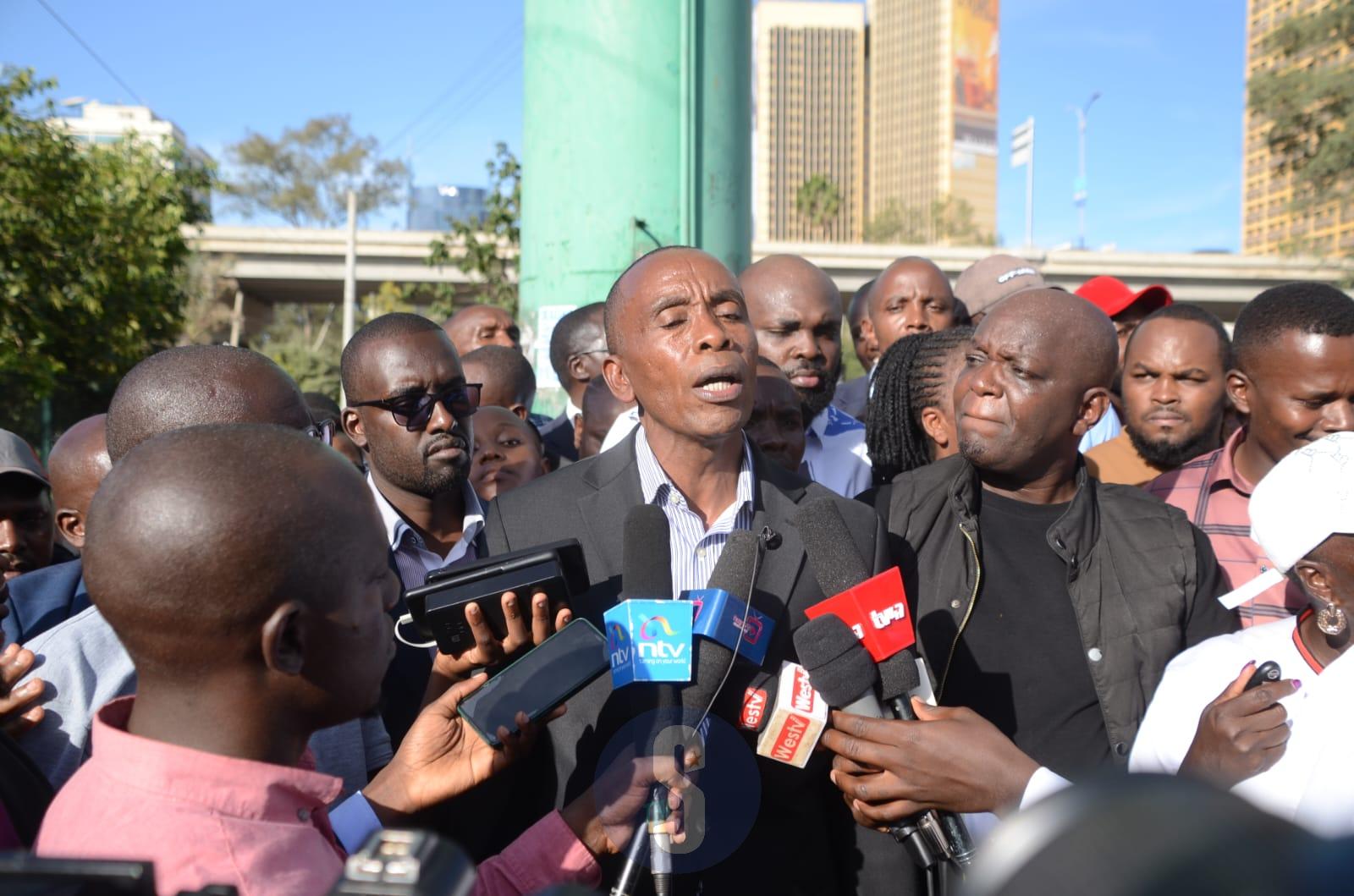
 Kiambu Governor Kimani Wamatangi, joined by his supporters, addresses the media after leaving EACC offices on April 15, 2025/DOUGLAS OKIDDY
Kiambu Governor Kimani Wamatangi, joined by his supporters, addresses the media after leaving EACC offices on April 15, 2025/DOUGLAS OKIDDYThe High Court has issued conservatory orders temporarily barring the arrest and prosecution of Kiambu Governor Kimani Wamatangi, offering him reprieve amid ongoing investigations.
The order was granted by Justice Chacha Mwita on Thursday following an urgent application filed under a certificate of urgency by the governor’s legal team.
In his ruling, Justice Mwita directed that the Director of Public Prosecutions (ODPP) and the Ethics and Anti-Corruption Commission (EACC) refrain from arresting or charging the governor based on the current investigations pending the determination of his case.
“A conservatory order is hereby issued restraining respondents from arresting and charging the petitioner based on the investigations undertaken in this matter until September 18, 2025,” the judge ruled.
The judge noted that while some aspects of the investigations were carried out pursuant to valid court orders, the ODPP had not yet decided on whether to prosecute.
He emphasised that the court would not interfere with investigative functions unless it is demonstrated that this is being done beyond the mandate to investigate.
Justice Mwita also warned against violating Governor Wamatangi’s fundamental rights, including the right to privacy and human dignity, during the investigation period.
Representing the governor, lawyer Arwa had argued that the petitioner was being unfairly targeted and risked unlawful arrest and harassment, which would infringe on his constitutional rights.
On the other hand, the second respondent, EACC, through lawyer David Ruto, opposed the issuance of the conservatory orders, insisting that the agency was merely conducting legitimate investigations and that no harassment or intimidation had occurred.
The ODPP, represented by Counsel Achochi, did not object to the court setting timelines for the filing of responses and submissions.
Justice Mwita directed the ODPP to file a response to both the application and the petition within 14 days.
“The petitioner will then have an equivalent period to file any supplementary affidavits and written submissions, each limited to 10 pages. The respondents will also be expected to file their written submissions within 14 days thereafter,” Justice Mwita said.
The case will be mentioned on September 19, 2025, at which time further directions will be issued.












